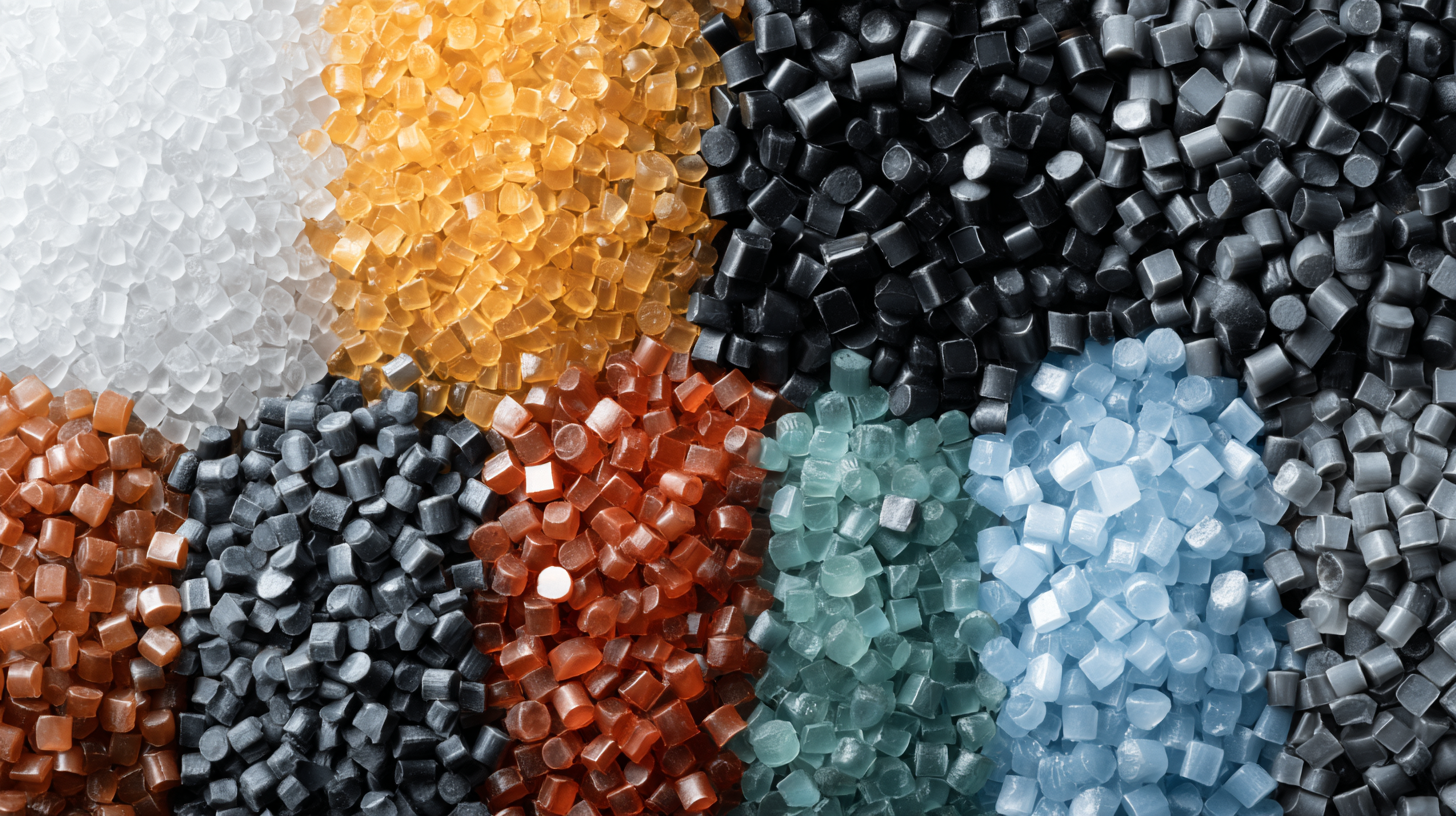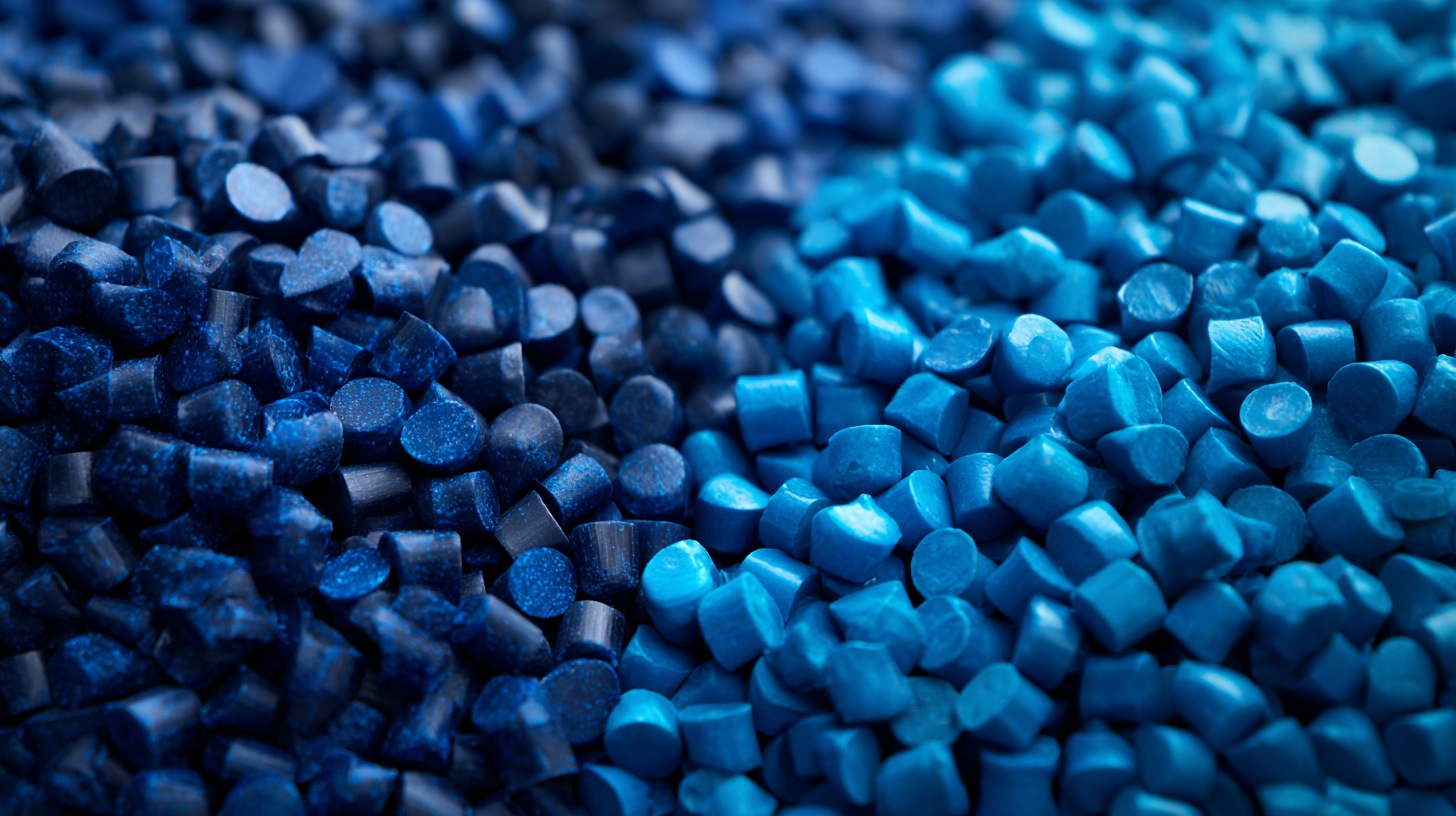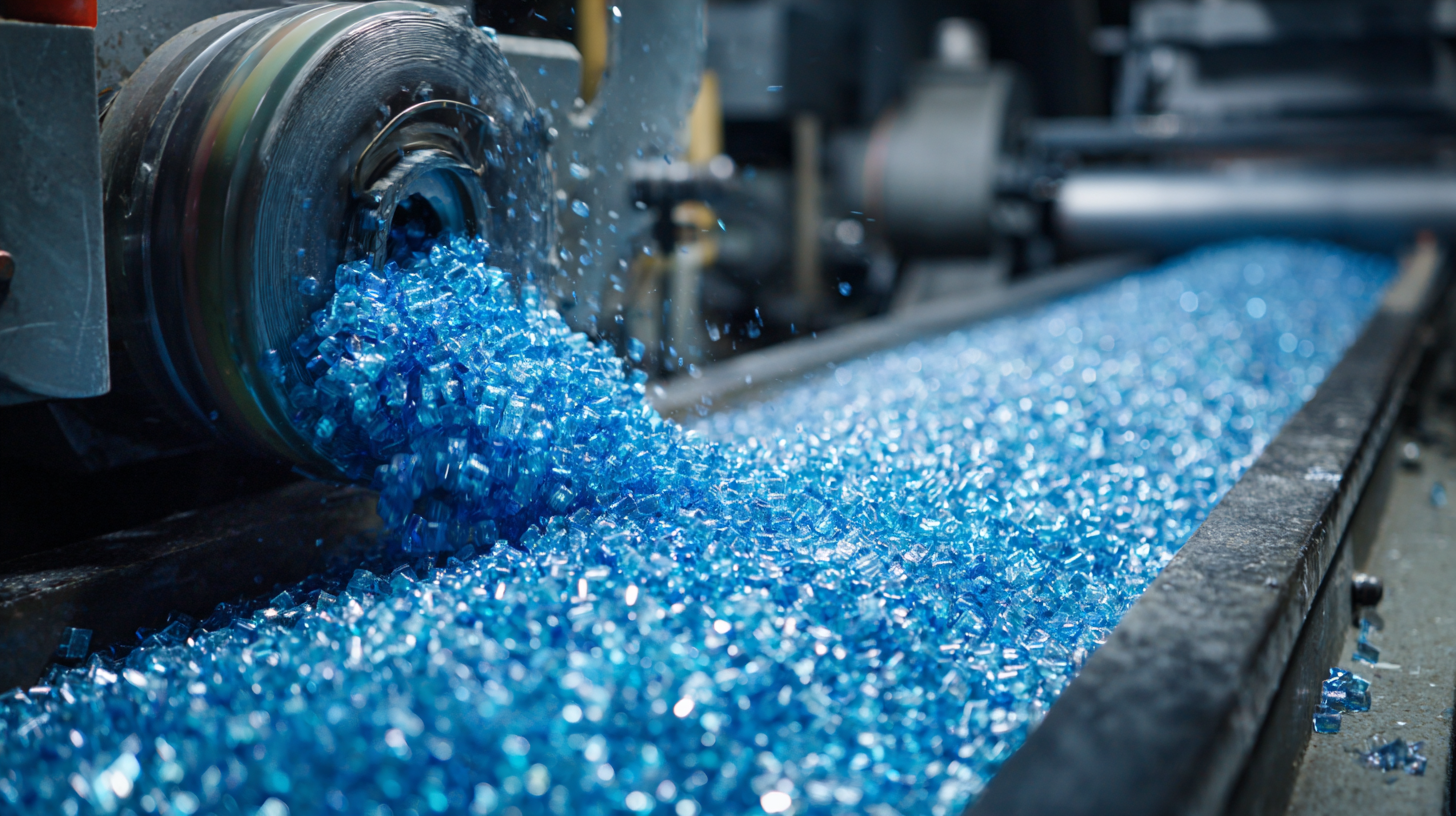- Home
- Masterbatch
- Additive Masterbatch
- Anti-Block Masterbatch
- Anti-Fog Masterbatch
- Anti-Microbial Masterbatch
- Anti-Oxidant Masterbatch
- Anti-Static Masterbatch
- Anti-Termite & Rodent Masterbatch
- Desiccant / Anti-Moisture Masterbatch
- Optical Brightener Masterbatch
- Flame Retardant Masterbatch
- Slip Masterbatch
- Polymer Processing Aid (PPA) Masterbatch
- UV Masterbatches
- VCI Additive Masterbatch
- Filler Masterbatch
- Black Masterbatch
- White Masterbatch
- Color Masterbatch
- Mono Masterbatches
- Special Effect Masterbatches
- EVA Masterbatch
- OXO Biodegradable Masterbatch
- XLPE Masterbatch
- Cable Masterbatch
- Nylon Masterbatch
- TPU Masterbatch
- Additive Masterbatch
- Compound
- Market
- Company
- Blog
- Contact Us
Unlocking the Benefits of Anti Block Masterbatch: Revolutionizing Plastics with Enhanced Performance
The evolution of the plastics industry is significantly driven by innovations such as
anti block masterbatch, a crucial additive that enhances the performance
of various plastic products. The global demand for plastic materials is expected to reach 600 million tons
by 2025, according to recent industry reports, with a notable shift towards high-performance solutions to meet sustainability standards and consumer expectations.
 Anti block masterbatch plays an essential role in improving the processing and end-use properties of plastics by preventing tackiness and ensuring optimal surface quality.
As a result, manufacturers can achieve enhanced clarity and reduced friction in their products, leading to increased productivity and product longevity.
Given the projected growth of the plastic additives market, anticipated to reach $8 billion by 2026, understanding
the benefits of anti block masterbatch will be pivotal in revolutionizing plastic applications across various sectors.
Anti block masterbatch plays an essential role in improving the processing and end-use properties of plastics by preventing tackiness and ensuring optimal surface quality.
As a result, manufacturers can achieve enhanced clarity and reduced friction in their products, leading to increased productivity and product longevity.
Given the projected growth of the plastic additives market, anticipated to reach $8 billion by 2026, understanding
the benefits of anti block masterbatch will be pivotal in revolutionizing plastic applications across various sectors.
Understanding Anti Block Masterbatches and Their Role in Plastics
 Anti block masterbatches play a crucial role in enhancing the performance of plastic products by preventing adhesion between polymer layers. This is particularly important in applications such as packaging, where cling-free properties are essential to maintain product integrity and ease of use. The global anti-blocking agent market is projected to grow significantly, with a report by MarketsandMarkets estimating it will reach USD 4.5 billion by 2025, driven by rising demand in the food packaging sector.
Anti block masterbatches play a crucial role in enhancing the performance of plastic products by preventing adhesion between polymer layers. This is particularly important in applications such as packaging, where cling-free properties are essential to maintain product integrity and ease of use. The global anti-blocking agent market is projected to grow significantly, with a report by MarketsandMarkets estimating it will reach USD 4.5 billion by 2025, driven by rising demand in the food packaging sector.
These masterbatches, typically incorporating materials like silica or calcium carbonate, allow for better processing efficiency and improved end-use performance. For instance, they enable smooth operation during production, reducing downtime caused by blockages in processing equipment. Furthermore, research indicates that incorporating anti block masterbatches can enhance product clarity and gloss, making them increasingly attractive for consumer-facing products.
As sustainability becomes a priority, the use of eco-friendly anti-block solutions is also on the rise, indicating a transformative shift in how plastics are manufactured and perceived in the market.
Key Performance Metrics Enhanced by Anti Block Masterbatches
Anti Block Masterbatches are transforming the plastics industry by enhancing critical performance metrics that directly address common production challenges. Primarily, these masterbatches are designed to minimize the friction between plastic films, preventing them from sticking together during manufacturing and storage. This anti-blocking property significantly improves the efficiency of processing operations, reducing downtime and waste, thus contributing to a more streamlined production workflow.
Additionally, the incorporation of Anti Block Masterbatches enhances the clarity and gloss of the final plastic products. By optimizing surface properties, manufacturers can achieve better visual appeal and functionality, particularly important in packaging applications. The improvements in mechanical strength and barrier properties also mean that products are better suited to withstand the rigors of handling and transportation, ultimately leading to more durable and reliable packaging solutions. Through these enhanced performance metrics, Anti Block Masterbatches are not merely additives but pivotal components in the evolution of high-performance plastics.
Market Trends: Growth of Anti Block Masterbatches in the Plastics Industry
The anti-block masterbatch market is witnessing notable growth in the plastics industry, primarily driven by the increasing demand for enhanced film performance and improved durability. According to a recent report by MarketsandMarkets, the global anti-block masterbatch market is projected to reach USD 3.1 billion by 2025, growing at a CAGR of 5.4% from 2020 to 2025. This growth is largely attributed to the rising use of flexible packaging solutions in both food and non-food applications, where enhanced slip and anti-block properties are essential for maintaining product integrity.
Moreover, the expansion of the packaging sector is bolstered by evolving consumer preferences towards sustainable and efficient packaging materials. The introduction of bio-based anti-block masterbatches is gaining traction, aligning with the industry's shift towards eco-friendly practices. A report by Grand View Research highlights that the consumption of biodegradable plastics is expected to rise significantly, further pushing the demand for specialized masterbatches. As the plastics industry continues to evolve, the integration of advanced anti-block masterbatches will play a crucial role in improving product performance and supporting market growth.

Application Case Studies: Success Stories of Enhanced Plastics Performance
The utilization of anti-block masterbatch has shown remarkable improvements in the performance of plastics, allowing manufacturers to solve issues related to surface adhesion. A case study from the Plastic Industry Association reports that the incorporation of anti-blocking agents can reduce the coefficient of friction by up to 90%, significantly enhancing the processing and handling of plastic films. This improvement is particularly beneficial in packaging applications, where preventing cling is essential to maintain product integrity and usability.
In the automotive sector, a prominent manufacturer implemented anti-block masterbatch in the production of interior components, resulting in a 25% increase in production efficiency. The use of these masterbatches led to smoother surfaces that minimized scratching and scuffing during assembly and transportation, according to data from the Automotive Plastics Council. Furthermore, the longevity and aesthetic appeal of the vehicle interiors enhanced customer satisfaction and positioned the brand as a leader in quality. Such success stories highlight the transformative impact of anti-block masterbatches in enhancing plastics performance across diverse applications.
Environmental Impact: How Anti Block Masterbatches Improve Sustainability in Packaging
The increasing emphasis on sustainability in the packaging industry is driving the adoption of anti-block masterbatches, which play a crucial role in enhancing the environmental performance of materials like BOPP films. As the global market for PET type anti-block masterbatches is projected to grow from USD 450 million in 2024 to USD 700 million by 2033, with a compound annual growth rate (CAGR) of over 6%, manufacturers are keen to leverage these advanced materials to improve product quality while reducing their ecological footprint.
Anti-block masterbatches not only prevent film layers from sticking together during processing, ensuring smoother production runs, but they also enable the creation of more robust and eco-friendly packaging solutions. The latest innovations have introduced optimized combinations of anti-block and slip additives, specifically designed for polyethylene blown films. This integration enhances processing efficiency and guarantees consistent product quality, ultimately leading to reduced waste and a lower overall environmental impact.
Tips: When choosing anti-block masterbatches for your production, consider factors such as compatibility with your primary resin and the specific performance attributes required for your end products. Investing in quality masterbatch can significantly streamline production processes and contribute to sustainability goals in the long term.



